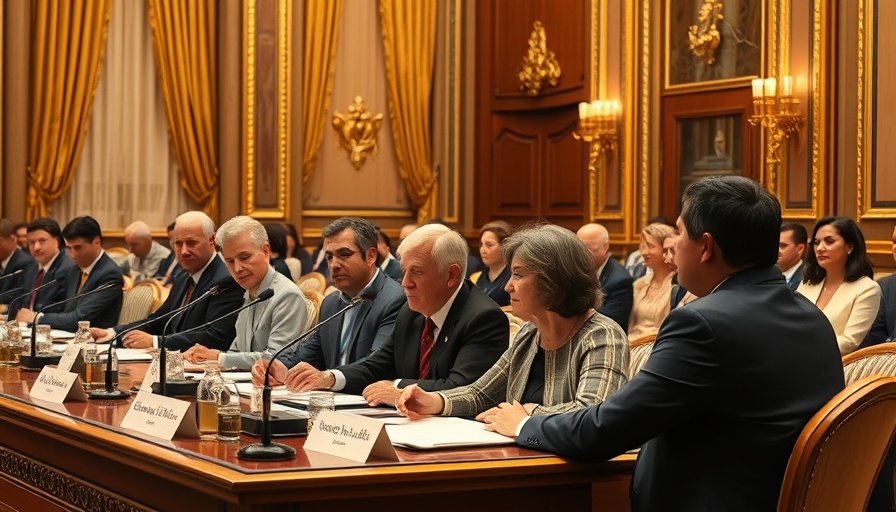
Understanding RFK Jr.'s Make America Healthy Again Report
In a significant move towards reshaping the landscape of American public health, Health and Human Services Secretary Robert F. Kennedy Jr. unveiled the “Make America Healthy Again” (MAHA) report on May 22, 2025. This 69-page document, while not enforceable by law, is positioned to influence future health policy discussions under the Trump administration. Kennedy's report provokes a deep dive into several contentious topics, particularly concerning childhood vaccinations, American agriculture, and the prescription drug landscape.
The Vaccine Debate: A Call for Increased Scrutiny
Citing a need for reassessment, the report suggests a revised approach to childhood vaccinations—historically a cornerstone of public health. Kennedy challenges the necessity of mandates that permit school attendance only if vaccinations are current, stating that vaccines should be more rigorously tested, including the use of placebos. This bold stance resonates with the ongoing vaccine debates, echoing sentiments from various socio-political factions who question government-imposed health directives.
Food Safety Under Examination: Pesticides and Nutrition
Another focal point of Kennedy's report is the examination of pesticides used in American agriculture. He contends that children are overmedicated but undernourished, a statement that raises alarms about the quality of the nation's food supply. The report calls for evaluations on how pesticides influence public health, potentially reopening discussions about organic versus conventional farming practices. This scrutiny could spark significant changes in how food safety regulations are structured, impacting consumers nationwide.
Concerns About Prescription Drugs
The MAHA report highlights concerns regarding the over-prescription of drugs, particularly to children. Critics argue that many of these medications carry side effects that may be more detrimental than the conditions they aim to treat. This sentiment has been echoed in research studies indicating that children are often medicated without sufficient consideration for long-term effects. Addressing this issue may prompt healthcare providers to adopt more cautious approaches in pediatric care.
Future Predictions: Will These Changes Take Hold?
The implications of the MAHA report could lead to notable shifts in federal health policies. With its call for increased scrutiny on vaccines, agricultural practices, and pharmaceutical prescriptions, stakeholders across various health sectors may be prompted to re-evaluate existing guidelines and protocols. Observers are keenly watching to see if strategies proposed by the MAHA commission can indeed translate into actionable health policies in the near future.
Community Reactions: Voices from Central Florida
As the report garners attention across the country, community members in places like Davenport and Polk County are expressing mixed feelings. Concerned parents are particularly vocal about vaccine safety issues, while others are seeking reassurance on the nutritional quality of food available in grocery stores. Understanding these community sentiments is crucial, as they reveal the public's appetite for dialogue and reform in health-related issues.
What's Next? Encouraging Healthy Living Initiatives
Amidst this heated discussion, there remains an opportunity for actionable health initiatives. Individuals can take steps to improve their well-being by advocating for transparency in food labeling, participating in local health forums, and prioritizing nutrition and fitness within their families. Community organizations can play a significant role in promoting health literacy, combating misinformation, and fostering an environment where informed choices can be made.
Final Thoughts: The Road Ahead for Public Health
The MAHA report stands at the intersection of public sentiment, policy, and health innovation. As we navigate through the complexities of vaccine safety, food quality, and prescription drug use, it becomes evident that open dialogue and research-backed policies are essential for the betterment of public health. The communities in Central Florida, along with others nationwide, must remain engaged and proactive in shaping the future of health initiatives.
As these discussions continue, let us consider how we can contribute to healthier living environments for ourselves and future generations. Stay informed, participate in community health initiatives, and advocate for policies that promote well-being in our communities.
 Add Row
Add Row  Add
Add 






Write A Comment